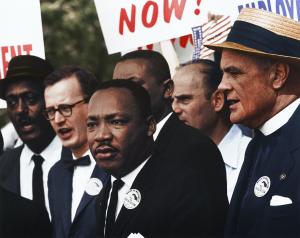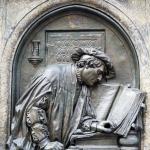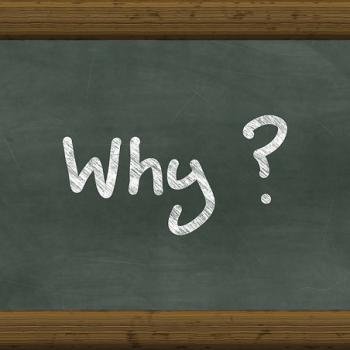
A little over four years ago, I took a seminary class on Dr. Martin Luther King Jr. (The Theology and Ethics of Dr. Martin Luther King, to be precise—or Martin Luther King class, for short. Taught by Dr. Hak Joon Lee). A whole class on Dr. King! I count myself fortunate.
I want to share a few things I remember from Martin Luther King class, things I still think about often.
The Need for Change is Urgent
I remember reading the whole Letter from a Birmingham Jail for the first time and being floored. I had seen quotes from it before, but it’s really worth reading in its entirety. I feel like it should be required reading for Christians—especially white Christians, but, in different ways, for everyone, really.
If you do nothing else for MLK day, consider reading (or re-reading) it. And, as you do, picture Dr. King writing from a prison cell. Without notes. Without the chance to draft and edit and re-draft. Without history books or Bibles or theology books at his disposal.
Dr. King had thought things through so deeply that he held all these resources in his mind, ready to call on them at a moment’s notice.
When I read Letter from a Birmingham Jail for Martin Luther King class, it was just a little over a year since I left the conservative evangelical church I attended for eleven years. At that church, for a woman who wanted to see women’s equality recognized in practices and policies, the message was often: wait, wait, patience, change takes time, wait.
Dr. King helped me better put my finger on why this is a load of baloney. He argues with urgency, and I think he’s right.
I don’t mean to make his work about gender when it’s not. That’s just part of the impact it had on me as a woman.
I also hear it as a white person. I hear the frustration, the disappointment, the disillusionment—with white people and especially white churches. I take it as loving and wise guidance in how not to keep perpetuating this frustration, disappointment, and disillusionment in our present day.
Change cannot wait. I don’t want to be one of the privileged people who pretends it can.
Justice Work is Community Work
I remember reading about the women behind the Montgomery Bus Boycott. (Here’s some cool art and a brief article about it, for some context.)
When a young Dr. King showed up in Birmingham as the new pastor of Dexter Avenue Baptist Church, people were already frustrated, already organized, already planning nonviolent action. Dr. King opened up his church for planning meetings, spoke eloquently and passionately, and quickly became the face and voice of the movement.
But it really was a movement. So many people, so many leaders. Dr. King used his gifts—and they were incredible and brilliant gifts—of speaking, preaching, inspiring and motivating people. And others used their own gifts in their own ways.
At his best, Dr. King operated in community. The racial justice work was community work. It was his work, but not only his.
Facing America’s Interrelated Flaws
I remember reading a broad array of Dr. King’s work and being impressed by how often he said stuff like this (from A Testament of Hope, published posthumously):
“The black revolution is much more than a struggle for the rights of Negroes. It is forcing America to face all its interrelated flaws—racism, poverty, militarism and materialism. It is exposing evils that are rooted deeply in the whole structure of our society.”
Of course, I would add patriarchy to the mix. But other than that, I think this is really helpful.
Once you start seeking liberation for one group, you find that what is needed is so much more. Everything is interconnected. And, as Dr. King writes, deeply, deeply rooted.
We still have the choice today to face these U.S. American evils—racism, poverty, militarism, materialism—and struggle against them for a better world, or to deny their existence (or their prevalence), ignoring the suffering they cause. Only one of these choices holds the potential for healing, justice, renewal, peace.
Martin Luther King Was a Baptist Minister
I remember learning much more about Dr. King’s Christian faith. He was a Baptist minister, and he had a PhD in systematic theology from Boston University. I feel like most people know that “Dr.” is attached to his name, but we don’t necessarily think much about the field his doctorate degree was in. He was highly trained in academic theology.
Today, not unlike when Dr. King lived, many of the most vocal Christian-identifying voices reject the things Dr. King stood for. And so I think it’s helpful to remember that everything King believed, said, and wrote was deeply informed by his belief in God and the Bible.
Dr. King drew often on the Hebrew prophets, the teachings of Jesus, and (even) the letters of Paul. He set an example of how to read the Bible looking for love and justice. Really, he was a prophet of a very different kind of Christian faith than what we (still) often see in dominant white U.S. evangelicalism.
Dr. King was out to “Save the soul of America.” This soul still needs saving.
Martin Luther King Saw Himself as a Global Citizen
I remember learning that Dr. King was much more globally connected than I had previously known. And he took a deeply global view of things.
Not only did Dr. King learn from Gandhi (which came up in a recent Jeopardy! question, by the way), but he also remained connected throughout his life with global freedom struggles. And he spoke out in no uncertain terms against the war in Vietnam. (I don’t know about you, but somehow that part seemed to get erased from my history textbooks.)
Dr. King saw himself as a “citizen of the world,” a “child of God and brother to the suffering poor of Vietnam.” He identified with both “those whose land is being laid waste” and with “the poor of America who are paying the double price of smashed hopes at home and death and corruption in Vietnam” (The Trumpet of Conscience, 1967).
Dr. King’s identification with oppressed people extended beyond his own race and nationality, into what he saw as an interconnected global community. He opposed violence and injustice in all its forms, in the U.S. and abroad, including those perpetrated by the U.S. government.
Once again, everything is connected. He saw that clearly.
The Things I Still Think About Often
Urgency.
Community.
Looking beyond the symptoms to a deeper need for a “radical revolution of values,” as Dr. King put it in A Time to Break Silence (1967).
Taking a global, holistic view of peacemaking that identifies with people who are impoverished and oppressed all over the world.
Connecting all of this to the justice-loving, peace-bringing, human-dignity-conferring God of the Bible.
These are some of the things I still think about often from Martin Luther King class. I carry these things with me as I seek to help build a more justice-loving Christian faith and a more just world.












